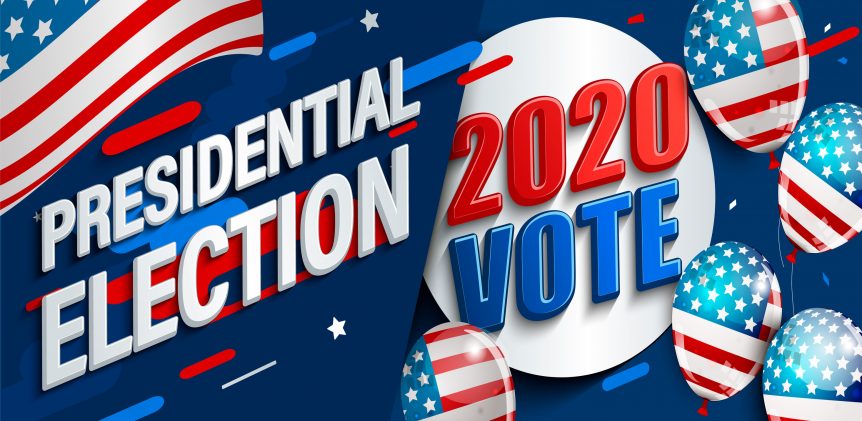Student loans, and more specifically, student loan debt is one of the most significant issues of contemporary life for many Americans. Over 44 million people are weighed down by student loan debt of some kind, totaling $1.6 trillion and counting. It is the second highest consumer debt category – with mortgages being the first – and it is likely to increase in the coming years.
Student loan debt has been a key issue during the 2020 presidential election, and each of the presidential candidates gave out their potential solutions on how to fix the problem and allow Americans the opportunity to pay off their debt for good.
Joe Biden – a former senator from Delaware, Vice President under Barack Obama, and the current presumptive Democratic nominee – believes in a more moderate approach to the issue. His plans would involve making student loan repayment easier with Americans paying only 5% of their income, as well as forgiving the loans after 20 years. He also believes in reorganizing loan forgiveness to give $10,000 relief for up to five years of community or national service, and clearing the loans if the person declares bankruptcy. Biden would also make the price of attending community college free for two years.
President Donald Trump has made plans of his own to address the issue. These plans include decreasing student loan debt and finding a balance that would benefit both taxpayers and students. In addition, Trump is in favor of limiting the federal government’s responsibility for education, while increasing the responsibility to educational institutions themselves. Under the president, 12.5% of a person’s income would be collected through one repayment plan, and the loans would be forgiven after 15 to 25 years. Trump is also in favor of removing the Public Service Loan Forgiveness program by July 1, 2020, effectively impacting future students seeking out these student loans.
Former presidential candidates have also weighed in on this issue and their positions are worth noting, as they may affect policy in the future.
Pete Buttigieg – a former mayor of South Bend, Indiana – while not endorsing free college, did believe that the price to attend educational institutions should be diminished and that tuition costs should be covered by individual states. He also endorsed loan debt forgiveness and repayment that either comes from a person’s income or from public service. While he was not in favor of cancelling student debt altogether, he was open to the idea of loan refinancing.
Bernie Sanders – a senator from Vermont – had perhaps the most liberal approach to solving the issue. Sanders would have sought to cancel $1.6 trillion of student loan debt, advocated for student loan refinancing, and wished to lower the interest rates of the loans so that the federal government wouldn’t be able to profit from them. He was also a proponent of free college under the College For All Act, which would assist families who make less than $125,000 per year, as well as students planning on attending community college.
Amy Klobuchar – a senator from Minnesota – would have wanted to increase Pell Grants and decrease interest rates by having the federal government refinance the loans. While she did believe in making the price of attending community college free, she overlapped with Buttigieg in not endorsing free college overall.
Elizabeth Warren – a senator from Massachusetts – was a supporter of complete student loan forgiveness for at least 75% of Americans, while partial forgiveness would be granted to an additional 20% of Americans. She also called for federal student loans to extend to public service loan forgiveness and that the loans should not create profit for the federal government. Warren then proposed that student debt could be repaid in part by taxing the wealthiest Americans.
Cory Booker – a senator from New Jersey – wished to renovate the higher education system by having colleges be debt-free, and to provide better ways for students who come from a low-income household to gain entry into such institutions. Booker also wanted to make the process for filling out the Free Application for Federal Student Aid (FAFSA) much easier than it is currently and call out student loan services for their unethical and predacious behavior.
Finally, Andrew Yang – a New York philanthropist and entrepreneur – was in favor of a 10x10 Student Loan Emancipation Plan that guaranteed loan forgiveness if a person was able to repay their loan using at least 10% of their salary for over a decade. Yang also had goals to develop vocational programs even further and have higher education institutions apply a more balanced ratio of students to administrators.
A variety of important questions regarding student loan debt have been brought to the attention of past and current candidates, and still need to be seriously considered even after the election ends:
Does the federal government have the ability to underwrite federal student loans since the loan default is already so high?
Would a tuition-free college educational system be financially feasible?
How exactly would these loans be forgiven? Would certain programs be used, such as repayment from a person’s income or through public service?
Can a balance be achieved among taxpayers and students regarding this issue?
If Donald Trump is granted a second term in office, how long would it take for these plans to be implemented? If there is no significant change regarding the issue of student loans in the present, could such changes be expected in the near future?
If student loan debt continues to increase and ultimately becomes too burdensome, will there be a new generation of Americans who skip going to college altogether and attend vocational schools instead?
Once Trump and Biden win their respective nominations as presidential candidates and Election Day draws nearer, the issue of student loan debt should remain a topic of conversation for them as they continue their campaigns throughout the country.
Both men would be wise to at least consider the advice of the former candidates, for the sake of millions of Americans struggling with student debt and only wanting to find a way to pay it back.

